The bodies of at least two migrants have been found near the border between Tunisia and Algeria. One body was found around ten days ago, the second was discovered on Monday night, after Tunisian authorities bussed hundreds of migrants to remote border regions following unrest in Sfax.
"Both bodies are of men, and rescuers have recovered the one found yesterday," a witness in Tunisia’s Hazoua desert border region not far from Algeria told the French news agency Agence France Presse AFP. The discovery of the bodies was also confirmed by a judicial official, added the news agency.
Tensions in Tunisia between sub-Saharan African migrants and locals have been worsening since February, when Tunisian President Kais Saied made discriminatory remarks about Black Africans, accusing them of being responsible for Tunisia’s ills and causing a crime wave. He also said that they were part of a plan to destabilize Tunisia’s population. His remarks led to discrimination and, in some cases, attacks on the migrant population in the country, many of whom had been living and working there for years.
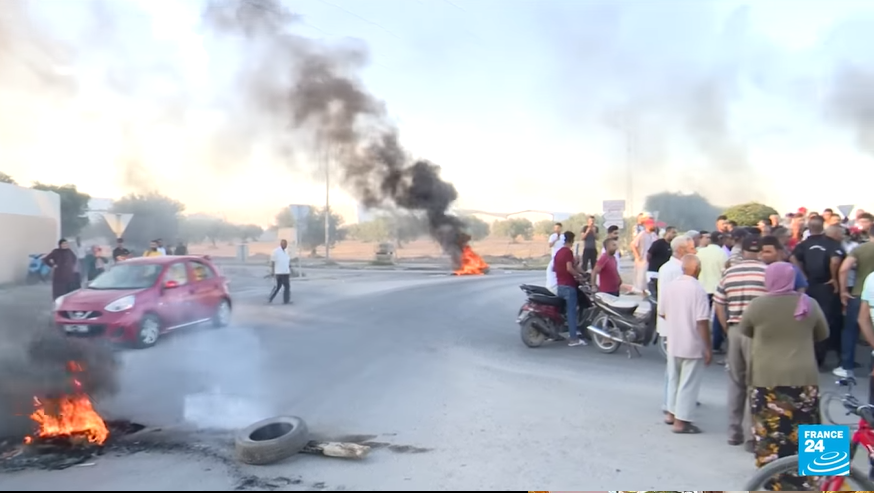
Also read: African migrants in Tunisia, 'we need help'
In recent weeks, unrest broke out in Tunisia’s second city Sfax. Analysts in the region have partly attributed this to the increased interception of migrant boats bound for Europe -- a result of new deals struck between the EU and Tunisia regarding migration management -- and the return of those migrants to Sfax. This has led to an increase in the number of migrants without accommodation in the city.
Some migrants feel safer sleeping outside
As a port city, Sfax is one of the main jumping off points for boats attempting to cross the Mediterranean towards Italy, and as the country’s second city, had also been a place where many migrants arriving in the country might seek work in order to make the money for the journey, or just to survive.
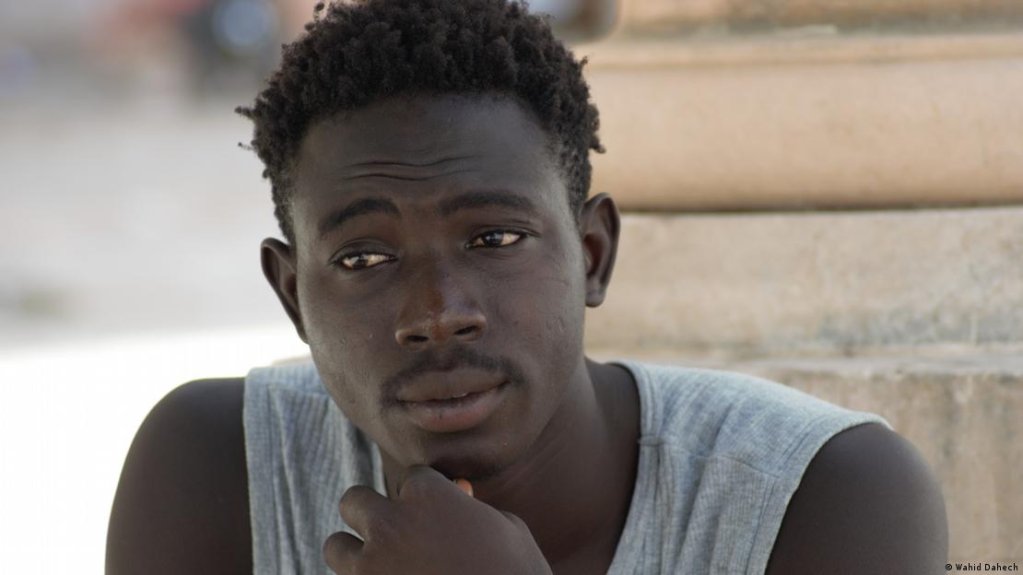
Also read: Tunisia, hundreds of migrants detained and expelled
On Tuesday (July 11), homeless migrants sleeping on roundabouts and small parks in Sfax told the BBC’s Nick Robinson that they felt safer out in the open than in the houses where they had been staying, because of attacks meted out by Tunisian locals, many of whom have been vowing to avenge the death of a Tunisian man who died when a fight broke out between the two groups.
After the racial tensions flared in Sfax, human rights groups and reporters accused the Tunisian authorities of bussing hundreds of migrants to border regions between Tunsia and Libya or Algeria. A witness, described as a local merchant by AFP, said he had seen two convoys transporting migrants into the desert and that nearly 100 had been left in the vicinity of Hazoua.
Beaten and abandoned
"Many of these migrants are trying to reach oases in the area where residents give them food and water," the witness explained. One of the migrants, 25-year-old Youssouf Bilayer from Ivory Coast who claims he was bussed towards Algeria told AFP, "we were in six buses and they left us in the forest – they made us get out by beating us."
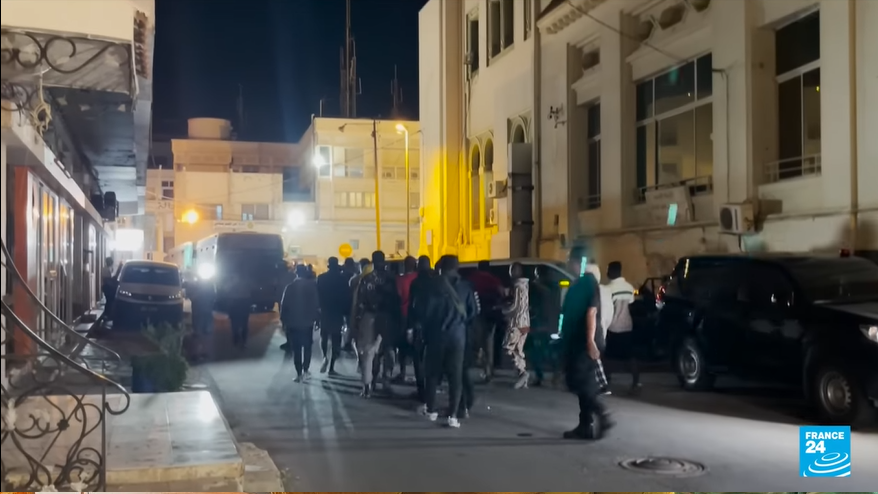
Bilayer says he was in a group of about six people who gradually moved northwards. He told AFP the group was about 40 kilometers south of Kasserine. "We want to get out of here and to be taken to Tunis or Sfax," he said. "We are suffering a lot. We were able to find a little water in the forest, but we’ve got nothing to eat. The police won’t let people give us food, all we can do is charge our phones a little."
Bilayer said that police had turned their group back about five times when they tried to get away from the border region, saying police had turned them repeatedly back towards the forest and Algeria.
Also read: Why do migrants choose smugglers to cross Mediterranean
HRW says 'several' migrants have already died
The organization Human Rights Watch estimates there are hundreds of migrants including many children in the border regions, and now between 150 and 200 migrants on the Tunisia-Algeria border. HRW says the migrants there are "risking their lives" if they are not provided with immediate humanitarian assistance. The organization was told by migrants on the border that "several" migrants have already died.
One Gambian migrant on the Algerian side of the border spoke to AFP by phone. Giving only his first name, Mamadou asked the journalists for help. "If you can send the Red Cross here, help us, otherwise we will die," he said. "There is nothing here. There’s no food, there’s no water."
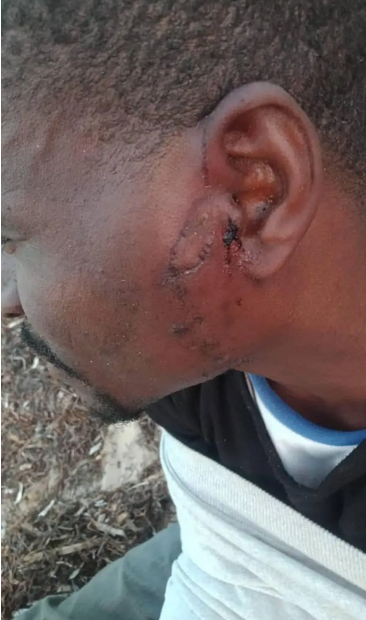
When journalists at AFP tried to call him back on Tuesday, he could not be reached, they reported. HRW published a report about the situation on July 6. They said that the region on the border between Tunisia and Libya was "remote and militarized."
Also read: Boat wrecks off Tunisia reveal worsening situation in the country
The organization said migrants had told them that Tunisian security forces had smashed their phones before leaving them in the region. They also said that the several hundred migrants included those with regular and irregular status in Tunisia, all were expelled "without due process."
Migrants reported "violence by authorities during arrest or expulsion," claimed the report. Lauren Seibert, refugee and migrant rights researcher at Human Rights Watch, called on the Tunisian government to "halt collective expulsions and urgently enable humanitarian access to the African migrants and asylum seekers already expelled to a dangersous area at the Tunisia-Libya border, with little food and no medical assistance."
'Collective expulsions violate international law'
Seibert added that "not only is it unconscionable to abuse people and abandon them in the desert, but collective expulsions violate international law."
At the time of the report, migrants in the border zone estimated that there were between 500 and 700 migrants there, about 35 kilometers east of the town of Ben Guerdane near Libya. Nationals from Ivory Coast, Cameroon, Mali, Guinea, Chad, Sudan and Senegal were all present. At least six of those expelled were already registered as asylum seekers with UNHCR, claimed HRW, and at least two had consular cards identifying them as students in Tunisia.
Also read: EU-Tunisia deal ignores human rights concerns
Most of those interviewed by HRW said they had been arrested following raids by the police, national guard and military in both Sfax. Between July 2 and July 5, states the HRW report, migrants expelled to the border told the organization that "several people died or were killed in the area –including some shot and others beaten by Tunisian military or national guard."
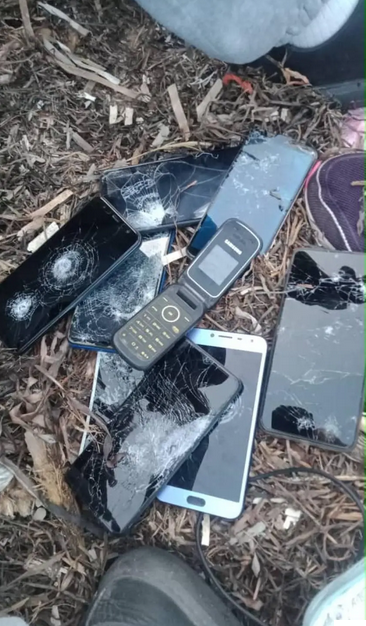
The migrants also allege that Libyan men carrying machetes or other weapons had robbed some people and raped several women, either those still in the Tunisian buffer zone, or those who had made it into Libya to look for food. No human rights groups have access to this area, so neither HRW or other groups have been able to independently confirm this.
Allegations of sexual assault
Migrants have been sending video accounts to HRW. In one video, states the NGO, a woman describes a sexual assault allegedly at the hands of the Tunisian security forces, and in another, a woman said that she had a miscarriage following her expulsion.
Some of the women say their children have not had anything to eat for seven days and that they have been forced to drink sea water. An Ivorian asylum seeker claimed that one Guinean pregnant woman went into labor with the stress "she died this morning...the baby died too," they stated in a video sent on July 4.
One Ivorian man interviewed by HRW in early July called the group’s treatment by the Tunisian security forces "inhuman." Other members of the group alleged they had been groped, kicked, had their heads slammed against vehicles, and their food and water taken from them.
The Tunisian human rights group FTDES has also called for urgent assistance for the migrants expelled to the border regions. They too confirmed that at least two of the group expelled towards the Libyan border on July 2 were registered as asylum seekers with the UNHCR.
With AFP
Also read: EU leaders discuss migration curbs, aid in Tunisia
